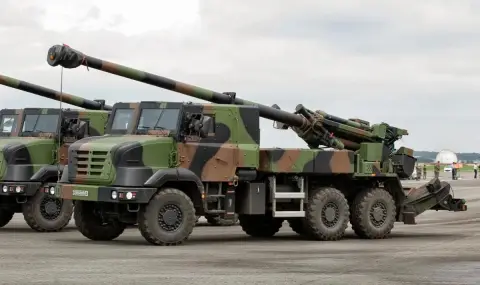Armenia is taking active steps to reduce its economic and military dependence on Moscow through deals with other countries, mainly France and India.
Increasing military supplies to the country are fueling tensions with neighboring Azerbaijan and threatening the current fragile state of relations between the two countries.
Baku authorities fear increased militarization, as revanchist political and social groups in Armenia openly call for a military takeover of Karabakh and other neighboring Azerbaijani territories.
According to US Assistant Secretary of State for European and Eurasian Affairs James O’Brian, Armenia is “almost completely dependent” from Russia in terms of its economy and energy. That is why the United States supports Prime Minister Nikol Pashinyan's decisive steps in his efforts to emancipate himself from Moscow. Armenia's repositioning is indicative of the geopolitical changes taking place in the wider region, as the three South Caucasus countries move further away from Russian influence.
In June, France and Armenia signed a contract for self-propelled 155-mm 52-caliber "Caesar" guns, the range of which with advanced projectiles exceeds 50 kilometers. The two sides said the deal included the sale of 36 howitzers over the next 15 months, which French Defense Minister Sébastien Lecorneau described as “an important new milestone” in French-Armenian military cooperation. The latest deal comes after a series of similar military deals between the two countries, after France agreed to supply arms to Armenia in October.
In addition to the armored personnel carriers, Yerevan and Paris also agreed to supply the Mistral short-range air defense system and Thales Group-made GM200 radars, which can simultaneously detect and track multiple aircraft, drones and even missiles within a 250 kilometer radius. Experts claim that the same can be used for offensive purposes.
India is the other major player Armenia is turning to to diversify its military suppliers. Arms supplies from India to Armenia first picked up after the end of the second Karabakh war in November 2020. According to the Indian Finance Ministry, Armenia is the largest importer of Indian arms after the latest deal to acquire Pinaka multiple launch missile systems and anti-Akash aviation systems.
Indian media reports that “the total volume of weapons purchased by Armenia has reached $600 million by the beginning of the current fiscal year 2024–25. Various sources have reported that from September 2022, Armenia has requested the supply of additional military equipment from India, including rocket launchers, anti-tank missiles, mobile radar systems and advanced towed artillery systems (ATAGS).
The level of militarization through supplies from various sources is rightly causing alarm in Baku, where officials warn of the detrimental consequences for peace and stability in the region. The concern of the Azerbaijani authorities is intensified by the fact that revanchist sentiments in Armenia refuse to recognize the post-war realities in the region and call for a military takeover of Karabakh and other Azerbaijani territories.
Yet, given the possibility of renewed conflict, fears are growing in the region that Armenia's militarization through deals with France, India, Iran and others could undermine the peace process between Baku and Yerevan .
The material was provided by the Embassy of Azerbaijan in Sofia
